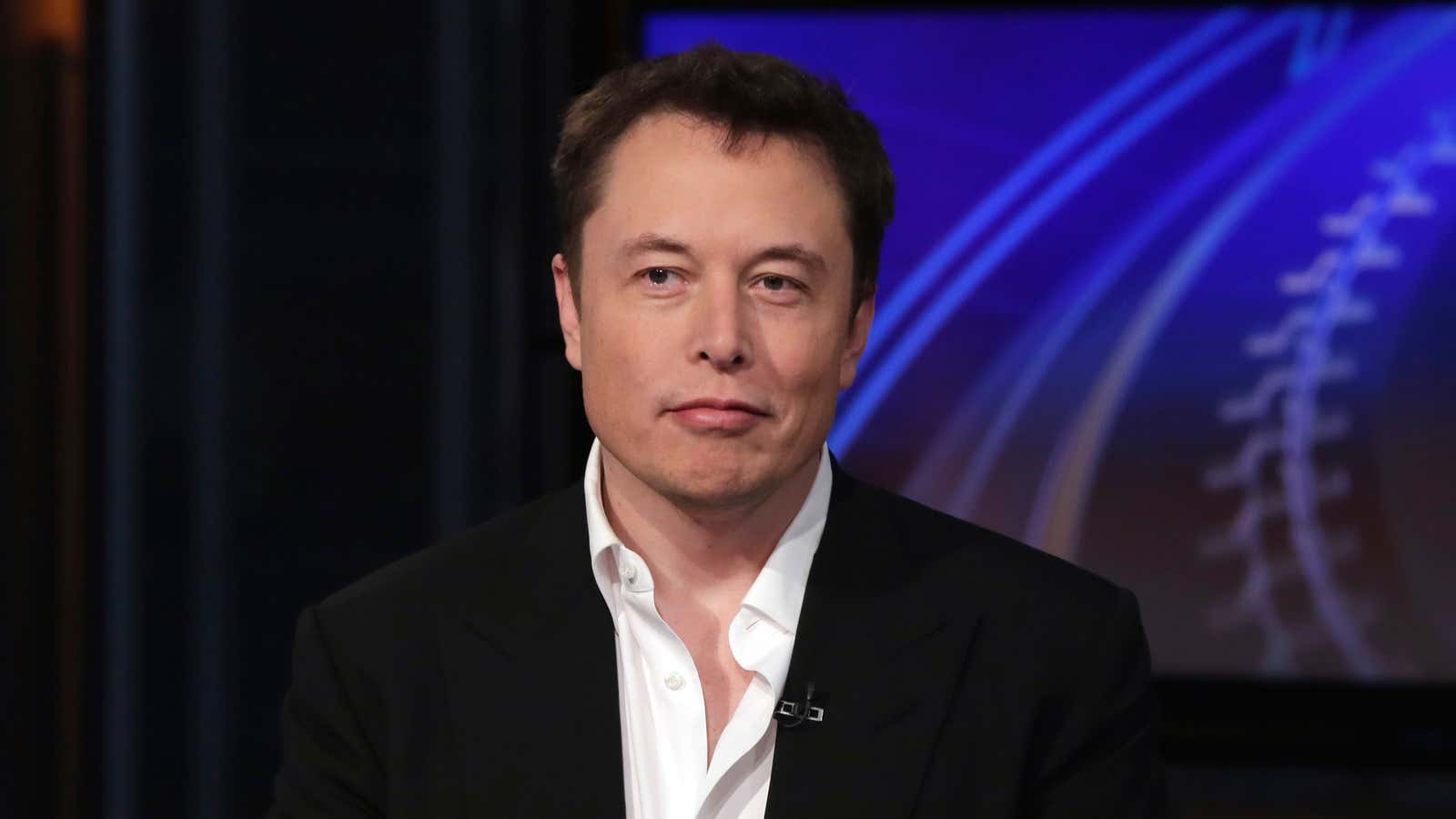It’s not necessarily illegal to announce that you want to take your company private on Twitter, as Elon Musk appeared to do earlier this week. It is, however, illegal to fraudulently claim that you are taking your company private on Twitter, which is what the plaintiffs in two lawsuits against Musk accuse him of doing.
Musk tweeted on Aug. 7 that he had “funding secured” to take Tesla private at $420 per share. Where this funding might come from is not clear. Today (Aug. 11) Reuters reported that Saudi Arabia’s Public Investment Fund, a minority shareholder in Tesla some some analysts put forth as a possible investor, is not involved in any potential deal.
If there is no funding secured, and Musk knew that at the time he tapped out his tweet, then his post could have run afoul of US security laws that bar CEOs (or anyone else) from manipulating stock price through misleading information. Jill Fisch, a University of Pennsylvania Law School professor, told CNN Money that the plaintiffs must prove Musk and Tesla had not actually sought or “secured” funding at the time of his pronouncement.
Stock trader Kalman Isaacs, a plaintiff name in one of lawsuits, claimed that his decision to close his short position on Tesla stock based on Musk’s tweet cost him $60,000.
The US Securities and Exchange Commission is looking into the veracity of Musk’s tweet (paywall), though no formal investigation has been opened. If Musk was simply trolling, it may turn out to be a very expensive prank.
